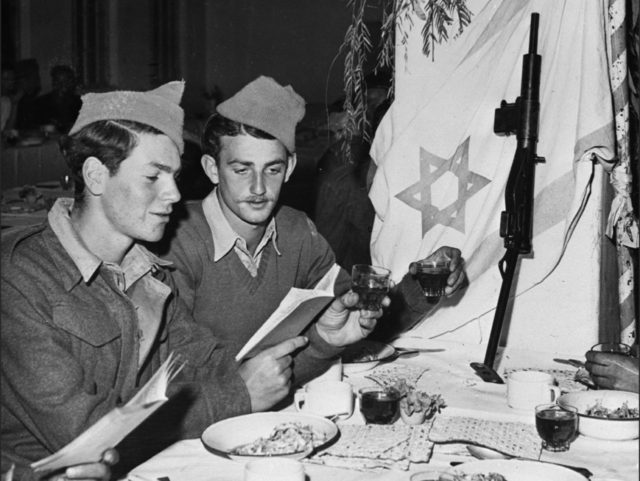The Jewish holiday of Passover begins Monday evening, commemorating the Exodus from Egypt, and from slavery to freedom, thousands of years ago.
The festival begins with the seder meal, which features a retelling of the story, along with the presentation of the paschal lamb (pesach), the eating of unleavened bread (matzah), and the tasting of bitter herbs (maror). The holiday lasts seven days (eight, outside Israel), during which leavened bread is forbidden.
From our contemporary perspective, in which Jews have enjoyed freedom in the United States for more than two centuries, and when the State of Israel has been established for nearly seventy years, it is too easy to overlook the fact that Jews celebrated freedom on Passover for millennia before we (or anyone) enjoyed anything remotely like political freedom. Moreover, there are some Jews still living today who can recall the deadly slave labor of Nazi concentration camps.
How ironic it must have seemed to Jews within the walls of the medieval ghetto, or trapped in its brutal 20th century reincarnations, to celebrate freedom!
And yet they still recited the Passover Haggadah: “In every generation a person is obligated to regard himself as if he had come out of Egypt, as it is said: ‘You shall tell your child on that day, it is because of this that the L-rd did for me when I left Egypt.'”
In every generation, whether in freedom or oppression.
What freedom could Jews possibly have celebrated in such circumstances, before the United States existed, before the emancipation of Europe, or before the State of Israel was born? Were their lives any better than those of the Hebrew slaves?
One answer is that the slavery of Egypt was of a particularly evil kind, because Pharaoh not only sought to make the people work, but to wipe them out through infanticide — an experience not repeated until the Holocaust.
But another answer is found within the Passover story itself. As the “Dayenu” song indicates, freedom from slavery would have been enough, but God also brought the people to Mount Sinai to receive the Torah, and brought them to the Land of Israel to build the Holy Temple.
In other words, what gave greater value to freedom was not merely the end of slavery, but also the acceptance of a moral code, and the fulfillment of a spiritual mission, which we hope to renew.
For Jews living under conditions of persecution and political repression, and even under the threat of extermination, what made Passover meaningful was not just the aspiration to achieve freedom and independence again one day, but also the enduring moral precepts of the Torah, which are to be observed regardless of the circumstances. At Passover every Jew is to regard himself or herself as if he or she personally left Egypt — as if he or she were, in reality, free.
There is a profound moral lesson in that commandment, which resonates far beyond the Passover holiday — and, indeed, beyond the peculiar Jewish experience.
To regard yourself as free, even when you are not, is to accept that you are still morally accountable for your behavior. Put differently: the oppressed and the oppressor are bound by a common moral code. The oppressed cannot excuse themselves from ethics, morals, or the law. Indeed, those are the keys to liberation.
That lesson resonates with the principles of America’s founding. The Framers of the Constitution did not embrace a simplistic, unrestrained freedom, but the idea of “liberty,” which implies self-government, both in the personal and civic sense.
Liberty, in that sense, is moral virtue applied to freedom. It is the kind of freedom Jews described on Passover even in oppression, and the kind of freedom American Jews have savored since arriving on these shores.
Joel B. Pollak is Senior Editor-at-Large at Breitbart News. He was named one of the “most influential” people in news media in 2016. His new book, How Trump Won: The Inside Story of a Revolution, is available from Regnery. Follow him on Twitter at @joelpollak.

COMMENTS
Please let us know if you're having issues with commenting.